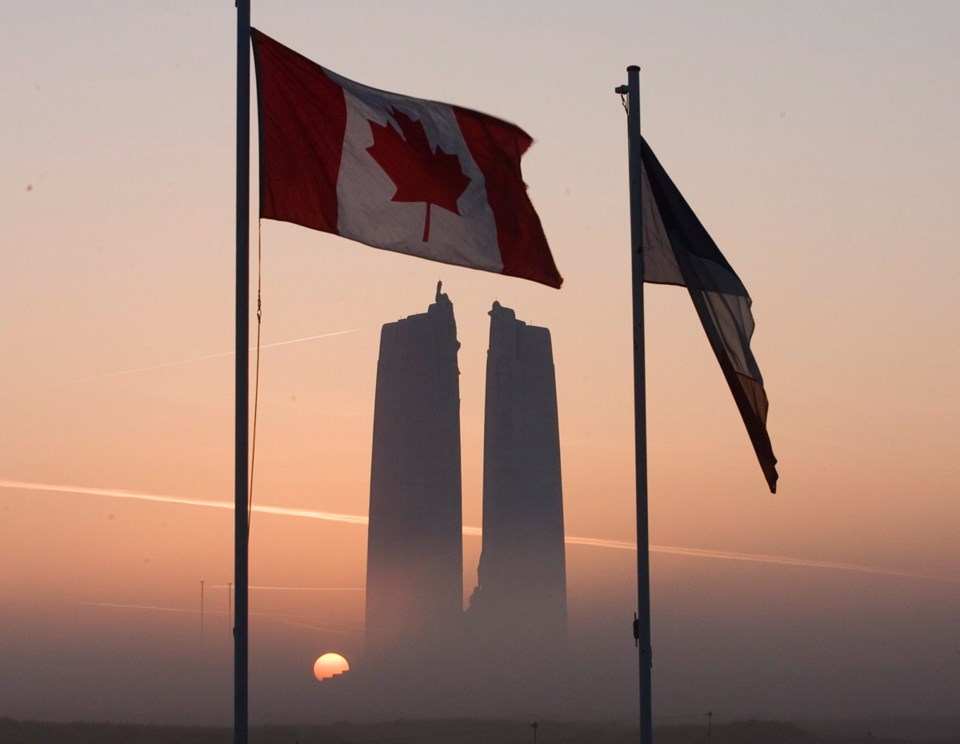The First World War can be counted as Canada’s own war of independence, says a historian from the Canadian War Museum in Ottawa.
Tim Cook said the 1914-1918 war defined and strengthened a new sense of Canadian independence, a national self-confidence that was ill-defined in the previous colonial mindset.
“Many people, myself included, see the First World War as a major change point in Canadian history,” Cook said on the phone this week en route to Victoria.
“It was the hardest war and the most difficult and the most costly thing we had ever done. It changed us forever as a people.”
Cook is in Victoria this weekend to speak at the annual seminar and dinner of the Pacific Coast Branch of the Western Front Association, an international group dedicated to the study and preservation of the history of the First World War.
He said the legacy of the war is physically present across Canada in the hundreds of memorials in communities, large and small. It’s also present in the national political landscape. It led to economic conditions that spurred the development of protest parties, such as the United Farmers and the Progressive parties in Western Canada, both forerunners of the Co-operative Commonwealth Federation and later the New Democratic Party.
Factory production necessary to support the war drew Canadian women into the workforce, reinforcing their public and social roles. In 1916, women earned the right to vote in Manitoba, and in 1918, they earned the right to vote federally.
The First World War even gave Canada some of its first national heroes, such as fighter pilot Billy Bishop. At its conclusion, Canada was at the table as an independent nation during the drafting of the Treaty of Versailles. Later, it joined the League of Nations, forerunner to the United Nations.
Cook said, in many ways, the legacy of the First World War is even more personally evocative for Canadians than the Second World War.
The First gave Canada Remembrance Day, still marked every Nov. 11, as a commemoration of peace and war’s sacrifices.
It gave Canada and the world the poppy as a symbol of grateful remembrance of war’s sacrifices and gratitude for peace.
The symbol can even be traced to a Canadian, military doctor Lt. Col. John McCrae, who died while in command of a military hospital in France in 1918. McCrae wrote the poem In Flanders Fields in 1915, beginning with the words “In Flanders fields the poppies blow.”
The First World War provided Canada’s most celebrated military victory, at Vimy Ridge, the April 9-12, 1917, battle in which the Canadian Corps, its four divisions fighting together as a unit for the first time, captured the enemy strongpoint at the cost of 10,600 casualties. Cook noted that in 2017, the 100th anniversary of the battle, more than 25,000 Canadians travelled to France to stand at a commemorative ceremony at the Vimy monument.
“Vimy is one of those enduring symbols that continue to matter to Canadians,” he said. “It may not count as ‘the birth of the nation,’ but it was certainly a crucial event in our history. What other kind of event would attract over 25,000 Canadians thousands of kilometres away from home? There has never been one.”



